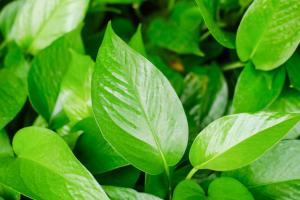Can You Plant Hostas Near Walnut Trees?
Hostas are a popular choice for gardeners who want to add lush foliage and beautiful blooms to their yard. However, many people are hesitant to plant them near walnut trees. The reason for this is because mature walnut trees produce a toxic substance called juglone that can be harmful to some plant species. But can hostas survive near walnut trees? Let’s find out.
What is Juglone?
Juglone is a toxic substance produced by the black walnut tree (Juglans nigra) and other plants in the Juglandaceae family. It is found in all parts of the tree, including the leaves, fruits, and roots. The toxicity of juglone is due to its ability to inhibit or kill other plants growing around the tree. Juglone is a defense mechanism that helps walnut trees outcompete nearby plants for resources.
How does Juglone Affect Hostas?
Hostas are moderately tolerant of juglone, but their ability to survive near walnut trees depends on various factors, including the age and health of the tree, drainage, and soil acidity. In general, hostas planted near walnut trees may show signs of stress, including stunted growth or yellowing leaves.
The most common symptoms of juglone toxicity in hostas are yellow or brown patches on the leaves, which may eventually turn completely brown and dry up. In some cases, the entire hosta plant may die. However, not all hostas are equally sensitive to juglone, and some varieties may fare better than others.
What Hostas Can You Plant Near Walnut Trees?
When selecting hostas to plant near walnut trees, it’s best to choose varieties that are more tolerant of juglone. Hostas with thick or waxy leaves, such as ‘Halcyon’ or ‘Blue Angel,’ may be less affected by juglone. Additionally, hostas with yellow or white variegation may be more prone to yellowing, so it’s best to avoid them if possible.
It’s also important to note that younger walnut trees produce less juglone than mature trees, so hostas planted near young trees may be less affected. If you’re unsure about the age or health of your walnut tree, consult with a horticulturist or arborist.
How to Enhance Hosta Survival Near Walnut Trees?
If you’re determined to plant hostas near a walnut tree, there are a few things you can do to increase their chances of survival.
Plant hostas in raised beds or containers to provide them with well-draining soil that is less likely to be affected by juglone.
Water hostas deeply and regularly to help flush out any juglone that may have accumulated in the soil.
Apply a layer of activated charcoal or compost to the soil around hostas to absorb any juglone and improve soil quality.
Monitor hostas regularly for signs of juglone toxicity and promptly remove any affected leaves or plants.
Conclusion
While hostas can survive near walnut trees, it’s important to choose varieties that are more tolerant of juglone and take steps to enhance their survival. With careful selection and proper care, you can enjoy the beauty of hostas in your garden, even if you have a mature walnut tree nearby.

 how many times do yo...
how many times do yo... how many planted tre...
how many planted tre... how many pine trees ...
how many pine trees ... how many pecan trees...
how many pecan trees... how many plants comp...
how many plants comp... how many plants can ...
how many plants can ... how many plants and ...
how many plants and ... how many pepper plan...
how many pepper plan...































